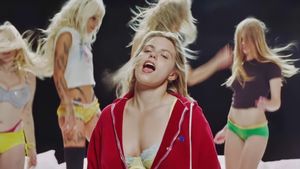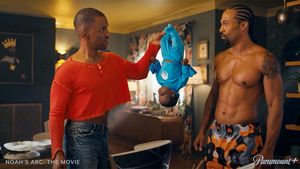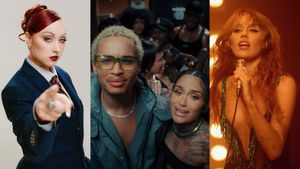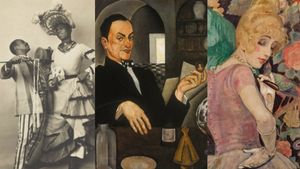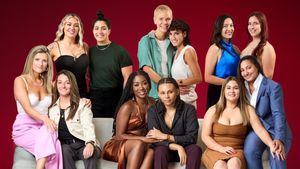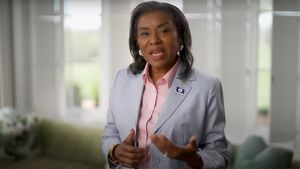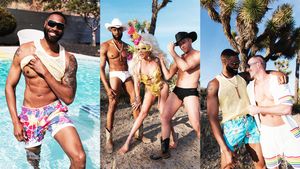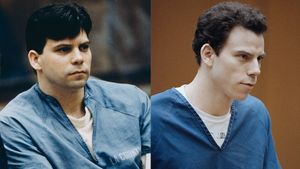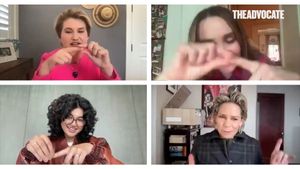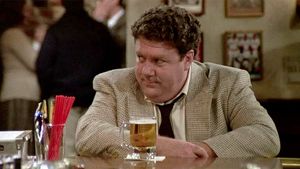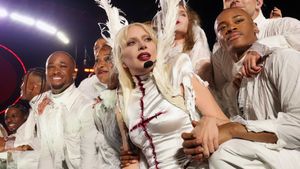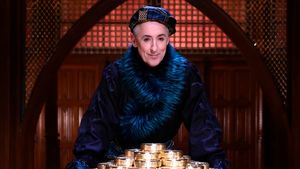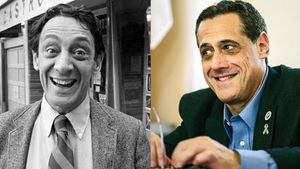I can’t remember a time before Barbara Walters because she’s been on TV my whole life. Like many women in journalism, I grew up watching her. For many years Walters was the only woman in TV journalism, first appearing in 1962. She’s been a staple, never off the TV screen in the 52 years since she was the first woman on network news. And so when she took her final bow on the May 16 episode of ABC’s The View, it was, for every woman in journalism in America, the end of a particular era, whether one was a devotee of Walters or not.
Walters’ departure was not unexpected. She had announced she was retiring months ago and had scaled back her on-screen time since heart-valve surgery in 2011. Yet it still seemed sudden, the idea that Walters would no longer be that daily face reminding us of just how close that glass ceiling still was.
There aren’t any 84-year-old journalists on TV. The closest to Walters in age is 60 Minutes co-host Morley Safer. But unlike men, women are still moved off camera when they begin to age or when they expect to be moved into a better position. Witnessthe despicable treatment afforded Ann Curry, former co-host of NBC’sToday.
Walters’ icon status is well deserved. She began working at NBC on The Today Show in 1962, doing "women’s" news as a segment reporter. (She was even asked to fill in for a swimsuit model who didn’t show one day.) She became a co-host on the show with Hugh Downs–the first woman to do so. Then in 1976 she broke yet more ground when she became the first female co-anchor of any network evening news program when she co-anchored the ABC evening news with Harry Reasoner. In 1979 ABC made her co-host and producer of 20/20 which she continued to do until 2004, when she retired from that show.
In 1997 she created her daytime talk show, The View, the multi-generational concept show, which she hoped would break yet more ground. The show has won multiple awards and has been nominated for Emmys every year it has been on air.
When it first debuted, New York Times entertainment critic Caryn James wrote, "The idea of women talking to one another on daytime television is not exactly radical. The idea that those women should be smart and accomplished is still odd enough to make The View seem wildly different. It actively defies the bubbleheads-‘R’-us approach to women's talk shows."
But it wasn’t any of these shows that made Barbara Walters iconic. It was the interviews.
Those who only know Walters from The View and her top ten most fascinating people shows may not know or realize that Walters nabbed interviews no one else did. Many powerful men and heads of state thought she would be less hard-hitting than a male reporter.
They were wrong.
Walters is a genius interviewer. Those of us who do this every day or week know the stress of prepping and then having the sit-down or phone call with someone you either admire or despise, are in awe of, or could not care less about. The good interviewer asks the hard questions and gets the great answers. But we all know it’s partly a gift–being able to make the subject of the interview feel comfortable enough that he or she will open up and tell you something they’ve told no one else.
What made Walters so good is she was elegant, she was restrained and she was super smart. The men in power she interviewed were lulled by her good looks and élan. And then she snared them, every time, with her quiet insistence on an answer.
In an interview with Nixon he tried to beat her at that game, telling her she was "too good" to resort to asking about Watergate. But she wore him down. And in wearing him down he revealed that he wished he’d burned the tapes–the tapes that forced him to resign the presidency and which put many of his top advisors in prison.
There were many firsts. Walters beat Walter Cronkite, her stiffest competitor, to a joint interview with both Anwar Sadat and Menachim Begin on the eve of the historic peace accord between Israel and Egypt. She was the first American journalist to interview Cuban dictator Fidel Castro. (The photos of her during her weeklong tour of Cuba with him are amazing.) She was the first Western journalist to interview Vladimir Putin.
The list goes on.
It was those interviews that made her the person everyone wanted to be interviewed by. If you were president or first lady, you had to be interviewed by Walters. And if you were caught in a scandal and wanted your side told, she was the person to go to. That’s what Nixon did and so did Monica Lewinsky.
There were also numerous interviews with celebrities–actors, singers, reality show personalities. Google "Barbara Walters interviews" and an amazing list comes up from John Wayne to Kim Kardashian.
It hasn’t all been perfection. Walters has had arguments with most of her co-hosts over the years–all the men and many of the women as well. She’s argued with most of her View co-hosts. She scolded Whoopi Goldberg and Joy Behar for walking out in the middle of a show with Bill O’Reilly.
The farewell show on The View was taped last Thursday and aired Friday. The panoply of guests was stunning and included former Secretary of State Hillary Clinton, Oscar-winner Michael Douglas and the queen of daytime talk who said Walters’ showed her how it was done, Oprah Winfrey.
Oprah brought a few friends with her–she introduced all the major women in TV news today, noting they were there "because of Walters’ inspiration." These included Diane Sawyer, Robin Roberts, Lara Spencer, Elizabeth Vargas, Amy Robach, Juju Chang, Deborah Roberts, Katie Couric, Savannah Guthrie, Natalie Morales, Tamron Hall, Maria Shriver, Cynthia McFadden, Kathy Lee Gifford, Hoda Kotb, Jane Pauley, Gayle King, Gretchen Carlson, Deborah Norville, Paula Zahn, Connie Chung and Joan Lunden.
It was quite the line-up. Sawyer had done a piece on Walters the previous week forABC World News and later on May 16 ABC aired a prime-time special on Walters with clips from some of her major interviews over the years, including her interviews with presidents Reagan and Nixon.
All her View co-hosts were there as well–current and former: Meredith Vieira, Star Jones, Debbie Matenopoulos, Joy Behar, Lisa Ling, Elisabeth Hasselbeck and Rosie O'Donnell came back to join Whoopi Goldberg, Sherri Shepherd and Jenny McCarthy along with Walters.
Seeing all these women, together–some young, most middle-aged, none close to Walters’ age–made a visual point: There is no one else like her. She’s the one who forged the path, who got those amazing interviews, who refused to back down, who won her spot as co-anchor in the man’s world TV news was (and largely still is).
We would have made it without Walters. We would have chipped away at that glass ceiling until we were allowed to do the interviews and be on the news. But because of her, because she made it clear that beautiful women could be smart as well and that smart superceded beauty because beauty fades and smart does not–because of her doing that, being Barbara Walters, the tough, won’t-take-no, get-the-interview no one else has, because of that those of us who have come after her have had it just a little bit easier because we had her as our model, our beacon of resistance against the wave of men telling us we weren’t as good as they were.
Barbara Walters was not only as good, she was almost always better. Which makes it that much harder to say goodbye.
Victoria A. Brownworth is an award-winning journalist, editor and writer. She has won the NLGJA, the Keystone Award, the Lambda Literary Award and has been nominated for the Pulitzer Prize. She won the 2013 Society of Professional Journalists Award for Enterprise/Investigative Reporting. She is a regular contributor to The Advocate and SheWired, a blogger for Huffington Post and a contributing editor for Curve magazine, Curve digital and Lambda Literary Review. Her writing has appeared in the New York Times. She is the author and editor of nearly 30 books including the award-winning Coming Out of Cancer: Writings from the Lesbian Cancer Epidemic and Restricted Access: Lesbians on Disability. Her collection, From Where We Sit: Black Writers Write Black Youth won the 2012 Moonbeam Award for Cultural/Historical Fiction. Her Y/A novel, Cutting will be published in fall 2014. @VABVOX









































































